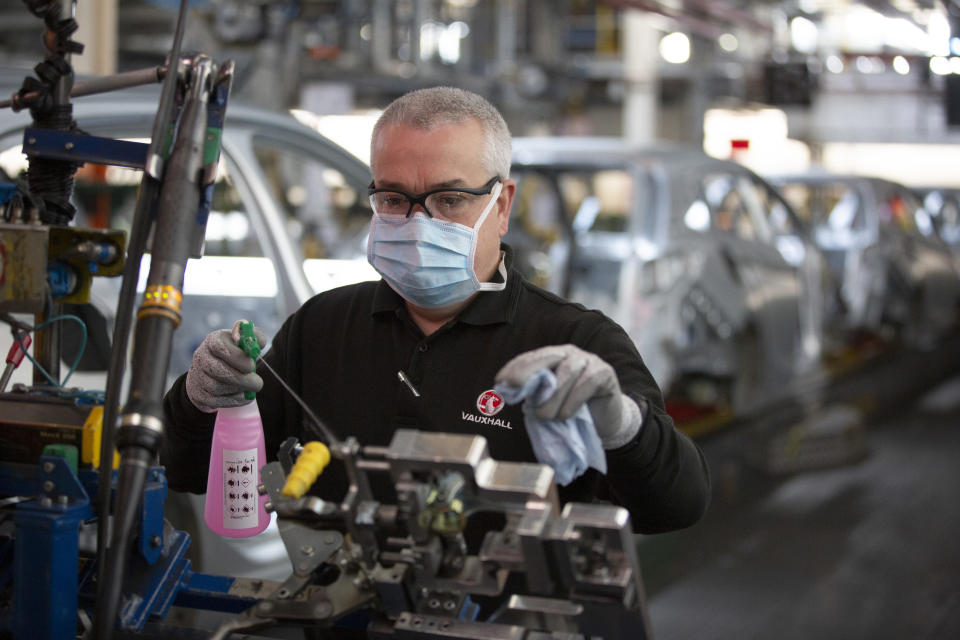Coronavirus: New UK manufacturing orders rise at fastest pace since 2018

The UK’s manufacturing sector continued its rebound in the wake of the coronavirus pandemic in July, with new orders growing at the fastest pace since late 2018.
The sector’s purchasing manager’s index (PMI) reading climbed to 53.3 last month, up from 50.1 in June and far above the record low of 32.6 seen in April, according to a closely watched survey from IHS Markit.
PMIs are an indicator of private sector activity and are given on a scale of 1 to 100. Anything above 50 signals growth, while anything below means contraction.
The figure is nonetheless below that of an earlier flash estimate of 53.6, and IHS Markit warned on Monday that it will take several months “to fully recoup the output lost since the start of the pandemic.”
READ MORE: HSBC profits plunge 65% as it accelerates 35,000 job cuts
The growth in new orders — the first since February — reflected a strengthening of domestic demand as coronavirus restrictions were eased across the UK.
New orders from export markets, however, fell for the ninth straight month, but to the weakest extent since February.
Manufacturing production grew for the the second consecutive month and rose to the largest extent since November 2017, IHS Markit said.
Growth was especially pronounced in the consumer and intermediate goods industries, according to the survey, while investment goods production also rose for the first time in 15 months.
All three sub-sectors of the manufacturing industry saw higher production due to improved inflows of new work, IHS Markit said.
Business sentiment rose to a 28-month high, with 62% of companies expecting production to be higher one year from now.
“The UK manufacturing sector started the third quarter on a much firmer footing, with output growth hitting a near three-year high and new orders rising for the first time in five months,” said Rob Dobson, a director at IHS Markit.
READ MORE: TUI raises $226m in Boeing 737 deal amid aviation sector woes
“The recovery strengthened as a loosening of lockdown restrictions allowed manufacturers to restart or raise production. July also saw signs of furloughed employees returning to work and customers resuming spending,” he said.
But employment fell for the sixth straight month in July, even as the pace of job losses slowed. Job cuts were linked to redundancies, natural wastage, and firms aligning their workforces with current needs, IHS Markit said.
“The employment situation also remained bleak, as job shedding continued and businesses re-modelled their strategies to the shrinking opportunities,” said Duncan Brock, group director at the Chartered Institute of Procurement and Supply.

 Yahoo Finance
Yahoo Finance 
